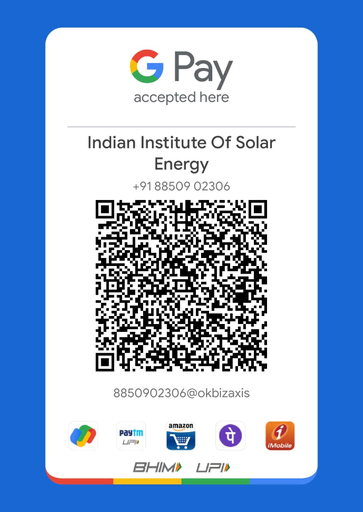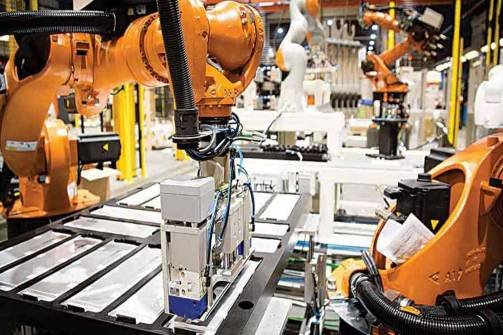YOUR CART
- No products in the cart.
Subtotal:
₹0
BEST SELLING PRODUCTS
₹1
FEE ONLINE PAYMENT by NEFT. Details are enclosed below.
NEFT favoring
INDIAN INSTITUTE OF SOLAR ENERGY
Current Account No.: 000412100071051
Bank Name: BHARAT BANK
Branch: CHEMBUR – MUMBAI
IFSC: BCBM0000005
You can pay using Gpay too. Just scan the QR code below.










| Monday | 10.00 to 18.00 |
| Tuesday | 10.00 to 18.00 |
| Wednesday | 10.00 to 18.00 |
| Thursday | 10.00 to 18.00 |
| Friday | 10.00 to 18.00 |
| Saturday | 10.00 to 18.00 |
| Sunday | Closed |








